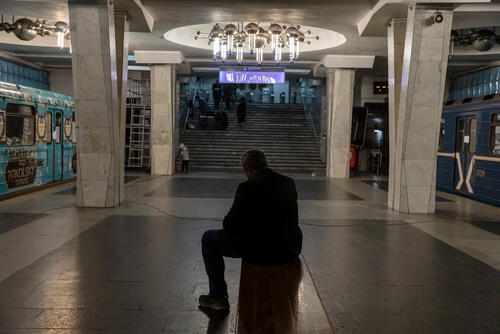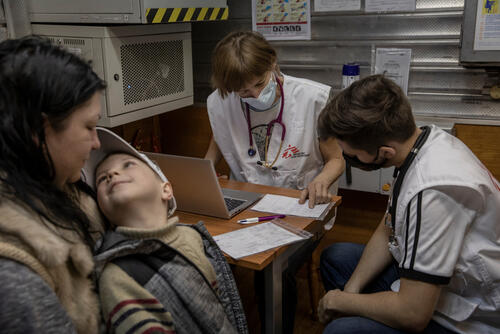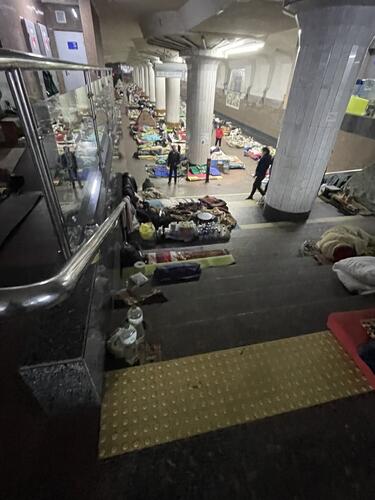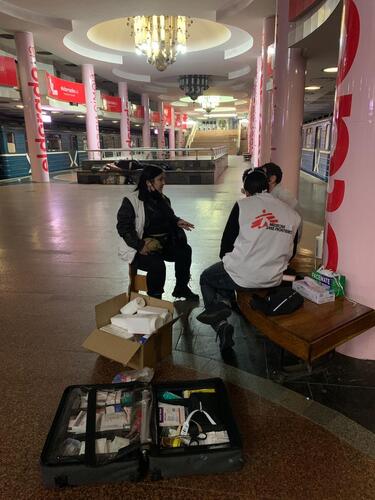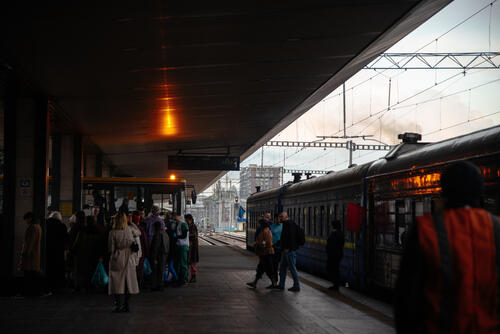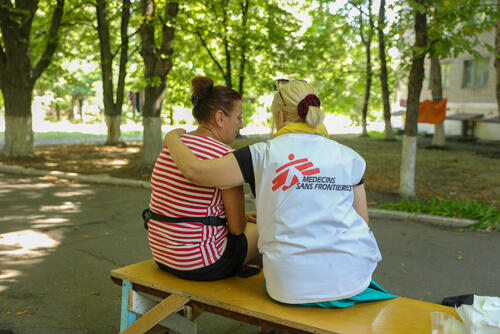Dr Morten Rostrup from Norway is working with Médecins Sans Frontières (MSF) in Kharkiv, northeastern Ukraine. Here, he and a team are providing medical consultations in the underground stations where people are sheltering from the country’s war. This is his first-hand account of what he saw and of the stories of people he met.
She was sitting on a bench in front of me at one of the metro stations in Kharkiv. Since the war broke out, the stations have functioned as shelters and thousands of people are sleeping on the platforms and in the train carriages. The woman had been thrown out of bed when a rocket hit her apartment building.
She had seen her aunt killed a few metres away from her. She couldn’t talk about it but burst into a flood of tears as she sat looking downwards. She was shaking. She wasn’t alone in seeking medical care this evening. There were many others.
A seven-year-old girl who had constant nightmares and was afraid of falling asleep. People experiencing physical pains they couldn’t explain. People who felt like they couldn’t breathe. A woman with sky-high blood pressure who was at risk of having a stroke.
An old man who showed me pictures of his three grandchildren. One of the children had been killed in an airstrike two days earlier, the other two were in hospital, one of them critically injured. The children’s father was also killed. The old man had suffered a stroke and had high blood pressure. He couldn’t sleep.
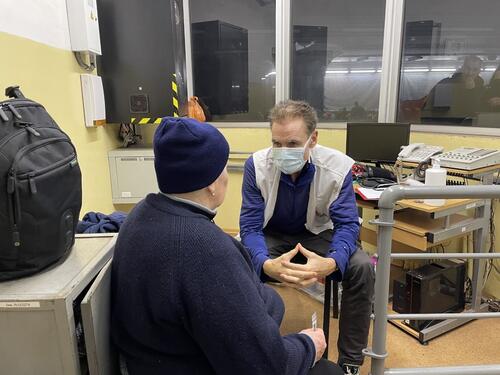
I have had many moving encounters with different people over these past few weeks. Our team travels from one metro station to the next. In the evenings we carry out dozens of medical consultations before pulling out our sleeping bags and spending the night there.
I have seen the despair, the lack of hope; the confusion, the inability to comprehend how they have ended up in this situation. Losing family members and friends, losing their homes, losing the future they had envisioned for themselves. I have seen the constant fear experienced by so many, and how some people collapse in terror when the sound of airstrikes fills the air.
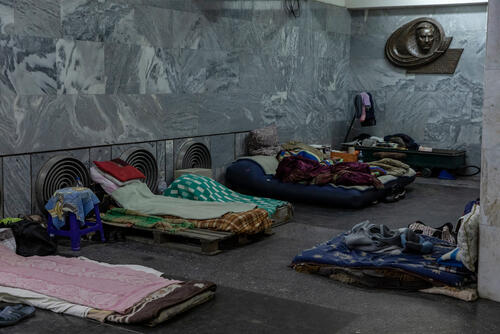
Before travelling to Kharkiv, I spent a few days in the city of Vinnytsia, which is located far from the frontline. We wanted to get in touch with Ukrainian psychologists who could assist the displaced people – many with psychological trauma – who were passing through the city on their way to safety in other countries.
This was when I met Olena, a psychologist from Ukraine. Her eyes were blank during our conversation. She had family members in the besieged city of Mariupol and had heard little about how they were doing. Olena said that she couldn’t work now.
Before the war, she had worked as a clinical psychologist and treated patients with personal problems. “The patients have stopped coming,” she said. “The problems they had before seem so small now.” Looking at me, she said: “It’s good to meet you. You are so calm. You don’t have the stress and worries that we have. The fact that you are here has a calming effect on us.”
The situation in Kharkiv is very challenging. There are still daily airstrikes. Parts of the city have been levelled to the ground. Half of the city’s 1.5 million people have fled. Some have chosen to stay or were unable to escape due to a lack of money, relatives or other contacts, or simply because they were too old or sick to travel.
Some of the people we met told us they would rather die in their own city. We assume that many of the most vulnerable people have not left. Many people have lost their homes, especially in the eastern part of the city.
I don’t know how many lungs I have listened to, throats I have looked at and stomachs I have felt. Not because I had a strong suspicion that anything was seriously wrong, but because I knew that a thorough check-up and a conversation acts as reassurance to the patients.
Their stress levels are so high that just a small symptom can cause significant anxiety for some patients. When I reassure them that nothing is seriously wrong with them, they thank me. I see the relief in their eyes. The fear of becoming sick in these circumstances plagues many, especially the patients with chronic diseases.
I don’t know how many lungs I have listened to, throats I have looked at... Not because I had a strong suspicion that anything was seriously wrong, but because I knew that a thorough check-up and a conversation acts as reassurance to the patients.Dr Morten Rostrup
It’s easy to forget these victims of the war: the people with increasing mental health problems and those who live with chronic diseases. When a war breaks out and they don’t receive follow-up medical care, diseases like these can have potentially devastating consequences.
There are patients with cardiovascular disease, lung disease, epilepsy, diabetes, cancer. Some die – in some war contexts, perhaps even more than those who die from injuries caused directly by the violence. Others are forced to flee to a place where they can get the medical care they need, preferably to another country.
Still, it’s encouraging to see how people here are helping each other. At each metro station, small communities have developed. The people sheltering there are well acquainted with each other. Groups of volunteers work to provide everyone with food and water. A medical student at one of the stations runs a small outpatient clinic and pharmacy. The toilets are cleaned.
Everyone in Kharkiv is contributing in their own way. Many contributions are also coming from abroad. We see a very strong sense of unity, but six weeks is a long time, especially when you can’t see a solution in the near future.
It's still cold in the metro stations. It seems that spring will come late to Kharkiv this year.



